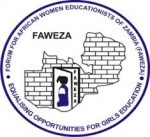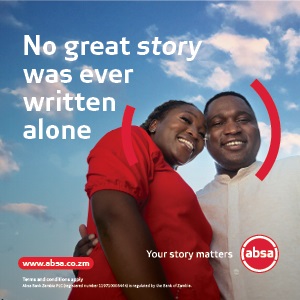
Website Forum for African Women Educationalists of Zambia
Gender Justice Organisation
FORUM FOR AFRICAN WOMEN EDUCATIONALISTS OF ZAMBIA (FAWEZA)
TERMS OF REFERENCE
Consultancy for End line Evaluation of the Transit school and Retention programme
Project Title:Transit School and Retention Programme
Level: Consultant -10 Years Experience
Location: Northern and Eastern Province
Expected start date: February 2019
Reporting to: Senior Programmes Officer
Re: Invitation for Technical and Financial Proposals for Consultancy Services for External End Line Evaluation of the Transit School and Retention programme.
1.0 BACKGROUND
Zambia has made significant strides towards the attainment of universal primary education, with national net enrolments on the downward swing from 96.3% in 2012 to 88% in 2016. Despite this progress, the education system is still challenged by a number of factors including large numbers of out of school children (OOSC). According to UNICEF OOSC 2014 report, the number of OOSC from 7 – 18 years in Zambia stood at 701,909 with girls constituting 55.1%. The factors explaining the prominence of OOSC include; early sexual debut, sexual abuse, early marriages, opportunity cost associated with girls’ school attendance, gender roles and responsibilities, child labor and teenage pregnancies among others.
It is for the aforementioned reason that FAWEZA in partnership with Ministry of General Education (MoGE) with funding support from UNICEF is implementing a ‘Transit School and Retention Programme’. This is a two and half year (July 2016 to December 2018) programme being implemented in four districts namely; Katete, Petauke, Kaputa, Nsenga Hill and Mbala of Eastern and Northern Provinces respectively. The intervention aims at increasing demand, access and retention for school age going children. The programme employed two strategies namely; 1) Transit Schools (TSs) and 2) Open Learning Centers (OLCs). The purpose of the Transit and Retention Programme is twofold: (a) To provide space where girls/boys who have either dropped out or never entered school catch up with peers and then filtered back into the formal system at-level with peers – mitigating the risk that they will drop out again because they cannot academically keep up with peers who have been in school the whole time; (b) to identify those Out Of School Children (OOSC) who will not re-enter the formal system and to ensure they have a minimum level of literacy, numeracy, life skills and to refer them to further skills development/job readiness/entrepreneurship, etc. programs that already exist.
The goal of the project is to contribute towards the reduction of school drop outs and OOSC in Zambia. The programme has three (3) specific objectives, each with specific outcomes and outputs linked to specifically designed activities as follows:
1. To provide alternative education for 4,000 OOSC at Grades 3, 4, 5 and 6 level to enable their re-integration into the formal education system by December 2018.
2. To implement a package of interventions (Sexual Reproduction Health, GBV, peer psychosocial support and financial literacy) targeting 2,000 peer educators and 50 SAfE overseers who will reach 40,000 learners (16,000 boys and 24,000 adolescent girls) in 50 schools in order to increase the retention and completion rates by December 2018.
3. To develop the capacity of communities, through community sensitization and advocacy to increase demand and access to education, especially for adolescent girls by December 2018.
With the above mentioned project objectives, FAWEZA now seeking the services of a consultant to undertake an End Line Evaluation of the Transit School and Retention Programme.
2.0 OBJECTIVE OF THE ENDLINE EVALUATION
The overall objective of the End line evaluation is to assess the impact of the Transit and Retention programme since the start of implementation in 2016, in line with the programme’s objectives and implementation framework, as well as to capture best practices and challenges and develop a detailed roadmap going forward.
Specific objectives:
1. To determine the state of the project indicators and provide comparative analysis with the baseline, including:
2. To assess the reach of the programme, ie the proportion of children (in different age brackets) who have been reached by the Transit and Retention Programme, who have been integrated in formal education, and who have not been reached ;
3. To assess the impact of the packages of the different aspects of the programme (i.e. Sexual and Reproductive Health, GBV, peer psychosocial support and financial literacy) on the targeted beneficiaries, compared with other out of school children and children who have followed the regular pathway, in terms of changes in knowledge (learning outcomes), attitudes and skills (behavior change);
4. To conduct a contextual and progress analysis to identify the factors that have facilitated progress and distill best practices, as well as factors that have challenged or limited progress
5. To provide the MoGE and other stakeholders with a roadmap to continue and accelerate progress going forward, including implementation and costing plan
3.0 SCOPE, FOCUS AND EVALUATION QUESTIONS
The consultant(s) will conduct the endline evaluation in a representative selection of schools across all implementation districts, namely Katete, Petauke, Kaputa , Nsenga Hill and Mbala districts (in Eastern and Northern Provinces respectively).
The evaluation is expected to focus on;
- Assessing the achievements of the programme in the targeted districts of Northern and Eastern province of Zambia;
- And assessing the relevance and influence of different packages of project interventions such as Sexual Reproduction Health, GBV, Peer Psychosocial support and Financial Literacy.
The evaluation will be informed by the following research questions;
1. To what extent has the project achieved the results (short, mid and long term)?
2. To what extent has the project activities responded to the factors that contribute to the number of OOSC (targeted beneficiaries, challenging and facilitating factors)?
3. How has the project influenced the communities’ responses to the education of children and what capacities have it built?
4. How effective were the strategies and tools used in implementing the project?
5. How effective were the management and accountability structures of the project?
6. How did the project financial and project management processes and procedures affect project implementation?
7. Describe the main lessons that have emerged from the intervention?
8. Is there evidence that the intervention is likely to scale up and/or continue beyond the project life?
4.0 DELIVERABLES AND PAYMENT SCHEDULE
The consultant(s) will be requested to submit the following 2 deliverables for payment:
1. Inception Report (30%)
2. Final End line Evaluation report, submitted in hard copy and soft copy (word and pdf) and presented to all relevant stakeholders (70%).
5.0 SUPERVISION
The consultant(s)/consultancy firm will work with FAWEZA and be accountable to the Senior Programme Officer. Day-to-day supervision will be through the Programme Manager assigned to the project study. Updates and discussions will take place through face-to-face over e-mail and/or conference calls, while all reports will be submitted through e-mails.
The consultant(s) will need to work together with a Technical Advisory Committee (TAC), which FAWEZA will co-ordinate and will include relevant stakeholders, first and foremost MoGE, as well as UNICEF and other stakeholders. The TAC will provide technical guidance and approval, and provide a platform to finalize the research questions, discuss any obstacles or issues and support the researchers throughout the study.
6.0 QUALIFICATIONS AND EXPERIENCE
- The consultants should have at least a Master’s degree in education, other related social sciences.
- The lead consultant should possess a minimum of ten (10) years professional experience in conducting research and/or evaluations of education programmes, preferably with a focus on equity-related issues (girls, out of school children, remedial education), in Zambia (or other countries).
- The consulting firm should demonstrate experience in working effectively with Ministry of General Education (MoGE) partners and other stakeholders within the Civil Society Organizations.
- The consultant should provide 2 or 3 samples of previous evaluations, preferably in the same field.
- The consultant(s) should have excellent written and verbal communication skills in English, and work with Zambian researchers who are familiar with relevant local languages.
5.0 TIME FRAME
The engagement will commence in February 2019 and works will be completed by April 2019
6.0 SUBMISSION OF APPLICATIONS
The invitation is open to consulting/research firms as well as individual consultants. Kindly provide a cover letter together with the Technical and Financial Proposals responding to Terms of Reference, and marked “End Line Evaluation” to [email protected] or The Executive Director, FAWEZA, P O Box 37695, Lusaka or delivered to Plot 6680, Chiwalamabwe Road, Olympia, Lusaka. Applications should be submitted not later than 25th January, 2019.
Please ensure that you mention www.gozambiajobs.com as the source of this job advertisement.

